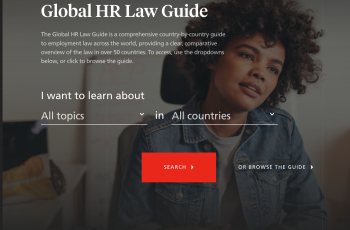
Recently, the US National Labor Relations Board (NLRB, or the ‘Board’) issued a press release detailing an increase in labour activity this year. Compared to this time last year, the Board has seen an exponential rise in representation petitions and unfair labour practice charges.
This increase in labour activity coincides with the Biden Administration’s push to limit employers’ right of free speech and revive automatic recognition of unions. As the labour landscape shifts, employers must shift their focus to preparation and training. Now, more than ever, executives and managers must know their rights and responsibilities under the National Labor Relations Act.
On 15 July 2022, the Board issued a press release detailing labour statistics from the first nine months of Fiscal Year 2022 (1 October to 30 June). According to the NLRB, filed union union representation petitions have increased by 58% from the previous year. Representation petitions are filed by employees, unions, or employers requesting an election to determine if employees wish to be represented by a union for the purposes of collective bargaining. During the first three quarters of Fiscal Year 2021, the NLRB received 1,197 representation petitions. This year, the NLRB received 1,892 representation petitions during that same time period.
Moreover, unfair labour practice charges have increased by 16%. An unfair labour practice charge is a complaint filed by any member of the public alleging an employer or union violated the National Labour Relations Act. During the first three quarters of Fiscal Year 2021, the NLRB received 11,082 unfair labour practice charges. This year, the NLRB has already received more than 12,000 unfair labour practice charges. For the first time since 2017, the number of unfair labour practice charges has surpassed the previous year.
In 2021, union approval reached a 50-year high with 68% of Americans approving unions. Conversely, from 1972 through 2016, union support rarely reached above 60%. This increase in representation petitions, unfair labour practice charges, and union support is a direct result of the Biden Administration’s push towards increased unionisation, with President Biden famously promising ‘to be the most pro-union President leading the most pro-union administration in American history.’ In short, the labour landscape is shifting.
Since her confirmation in June 2021, NLRB General Counsel Abruzzo (‘Abruzzo’) has attempted to minimise the barriers unions face when seeking representation certification, and, in an April 2022 memo, announced her intent to challenge an employer’s ability to hold informal meetings to discuss union organising.
Abruzzo has also made clear her intent to reverse the Board’s decision in The Boeing Co. Under The Boeing Co., a workplace rule is lawful unless it directly or indirectly restricts an employee’s right to engage in protected activity and outweighs the employer’s legitimate justification for the rule. It is likely Abruzzo intends to return to the Board’s analysis of workplace rules under Lutheran Heritage, meaning workplace rules would be unlawful if employees could reasonably believe the rule limited their right to engage in protected activity. A return to Lutheran Heritage would considerably limit an employer’s right to manage employee behaviour and its own business interests.
Abruzzo’s intent to revisit these decisions and standards has coincided with an increase in representation petitions and unfair labour practice charges. Unions understand the labour landscape is shifting and are becoming more vigorous in their attempts to organise, knowing the Board will back them. Employees and unions are also filing more unfair labour practice charges, taking advantage of Abruzzo’s agenda. We have already seen the NLRB consistently take a more aggressive approach to pursuing election objections and unfair labour practice charges filed by unions.
As public and political support for unions continues to rise, employers can expect an increase in election petitions and unfair labour practice charges. Initial and recurrent management training is more important than ever, to ensure managers know how to discuss potential unionisation with their employees and, once a petition for election has been filed, understand the laws governing what can and cannot be said during the election period. Finally, now more than ever, employers must ensure their policies and procedures are lawful. Employers should also partner take specialist legal advice to be prepared for the continued increase in union activity.
For more information about employment
